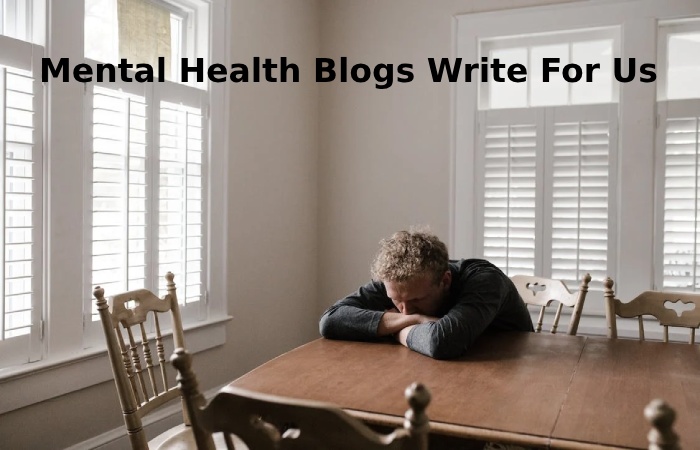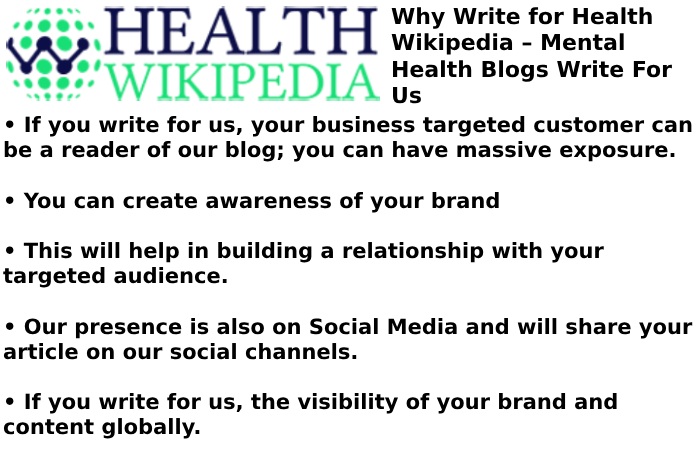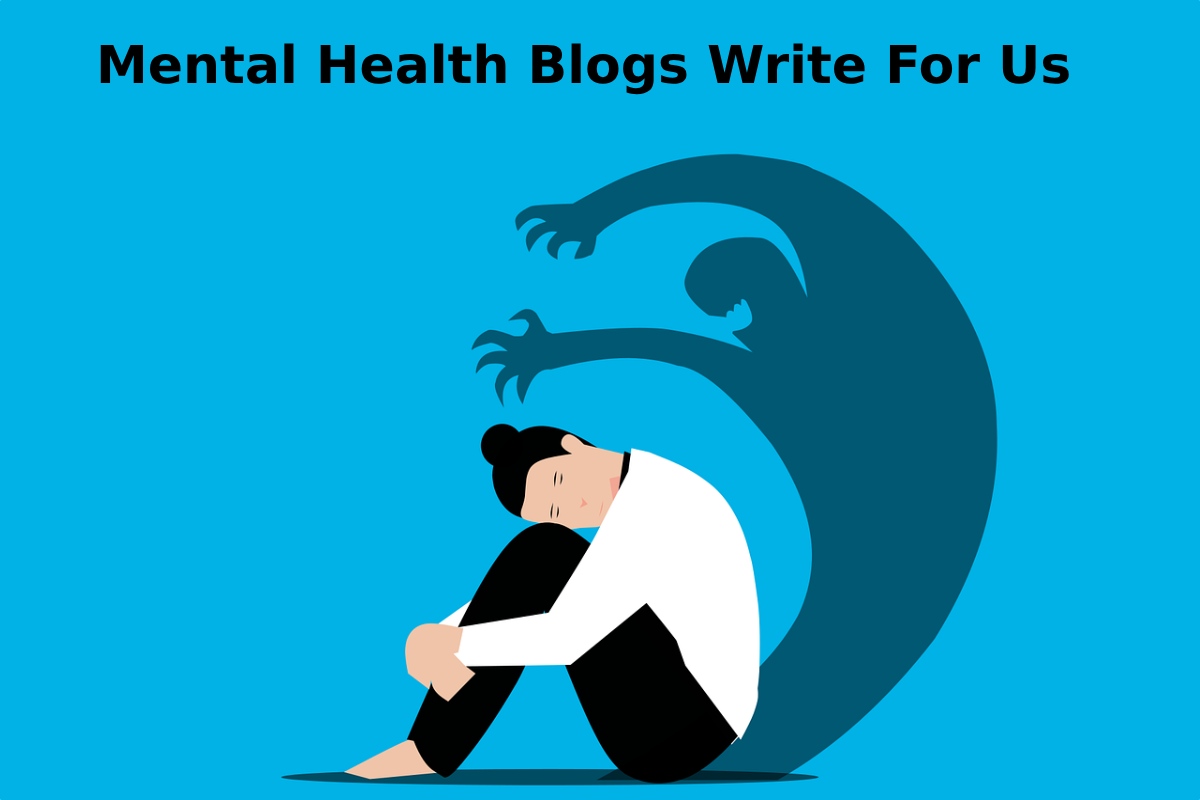Mental Health Blogs Write For Us – Mental health, like overall health, is not limited to the absence of mental disorders. Again according to the WHO, mental health allows us “to cope with life’s sources of stress, to realize our potential, to learn and work well, and to contribute to the life of the community.” The social and environmental spheres and the biological conditions of each individual are all factors that modulate mental health. In particular, the quality of life and working conditions (QVCT) significantly impact mental well-being.
If one does not care for one’s mental health, somatic disorders can accompany psychic disorders. For example, depression can weaken the immune system; it is reciprocal. Anger and stress are emotions ultimately linked to cardiovascular problems; they increase the risk. Stress affects neurons, the endocrine system, and the cardiovascular system. Mental disorders can trigger bodily conditions such as weight loss or gain, cardiovascular disease, and diabetes.
One thinks in particular of the stress induced by the quality of life and working conditions, which can cause severe disorders such as insomnia, burn-out and other psychosocial risks, hypertension, stroke, and infarction for cardiovascular, muscle pain, or digestive disorders.
The effects of bodily health on mental health
Certain somatic disorders can be accompanied by psychic disturbances such as anxiety, depression, or addictions. It has been scientifically recognized that certain diseases, such as cancer, diabetes, sexually transmitted infections, and cardiovascular diseases, can cause depression. Scientific discovery has revealed a new link between inflammation and depression.
In particular, certain chronic diseases we mentioned above induce inflammation, which disrupts the production of hormones essential to well-being (serotonin, in particular). Psychological disorders follow, ranging from nervous fatigue to anxiety attacks and depression.
Solutions to combine mental health and physical health
Let’s feed this virtuous circle of health! Let’s connect mental health and physical health to improve our overall well-being. Here are our ideas:
Improve your sleep
Put the odds on your side to find a good sleep: go to bed early enough, stop screens at least 1 hour before bedtime, do not play sports in the 4 hours before bedtime, and do not overeat fat in the evening. We keep in mind that good sleep strengthens our immune system.
Manage your stress
Easier said than done, you will say, but you have to start somewhere. Choose the option that suits you; there is bound to be one. Yoga, meditation, sophrology (smartphone applications can help you), selected social interactions, sports to evacuate the overflow, sessions with a psychologist… Better managing your stress not only allows you to sleep better but also to prevent cardiovascular diseases.

Have a balanced diet.
Does a healthy mind in a healthy body speak to you? Have you ever felt it? Scientific studies show the positive effect of a healthy and balanced diet on mental health, well-being, and quality of life. Just that! To your fruits and vegetables and be happy!
Exercising regularly
There is no escaping it; it is necessary to move a minimum to be in good health, mental and physical. We are not asking to run a weekly marathon and do weight training in the gym at all costs. Just enough to secrete the hormones of happiness… The hormones of what?
When we do physical activity, the body secretes hormones that are good for the mind:
- Endorphin, which reduces stress and anxiety. Namely that the body releases it after about 30 minutes of physical activity. Courage!
- Serotonin, which regulates mood.
- Dopamine intervenes in the reward circuitry and makes you want to exercise again.
- Norepinephrine is the survival stress hormone.
This release of hormones has been scientifically shown to reduce symptoms of depression.
In addition, physical activity has the power to oxygenate the brain and thus prevent cognitive aging. According to scientific studies, regular physical exercise prevents Alzheimer’s disease.
Work-related danger factors that can affect mental health
Numerous factors can disturb the mental health of employees at work:
Inadequate health and safety policies
Occupational health and safety policies aim to protect the well-being of employees, visitors, and customers. They also protect employers.
For example, a general policy may include consulting employees on day-to-day health issues or demonstrating a commitment to safe working conditions. Do staff work with hazardous materials or poorly maintained equipment? Are there too many people in the workplace? Is it badly lit, poorly ventilated, or unsanitary? Are workplace accidents common? Do employee complaints or concerns about safety go unaddressed?
Workplaces with poor health and safety policies can affect employee mental health, lead to attrition, create a risk of legal action, or hurt profitability.
Poor communication and management practices
Courteous and engaging communication and management practices testify to a good relationship between managers and employees.
On the other hand, if communication and practices are poor, tensions are created in the relationship, leading to deprived mental health and increasing stress at work.
Poor levels of employee support
Managers who don’t help break down barriers or share resources with employees can contribute to employee saturation and demotivation. For example, instead of expecting employees to get by with tasks they don’t fully understand, managers should show them how to do those tasks and be available to answer questions.
performance pressure
Expecting employees to perform at their best constantly puts unreasonable pressure on them. This leads to increased workload and working hours, additional stress, and emotional exhaustion.
How can mental health issues affect my work?
When you feel mentally and emotionally well, you approach your work with good mental health. You are versatile, flexible, and resilient.
But when you struggle with poor mental health at work, even if it’s not extreme, negative repercussions affect your career in many ways.
Here are five consequences of poor mental health at work:
-
Commitment to his work
Inferior mental health leads to demotivation and lack of concentration. When we experience mental health issues, our mind wanders or dwells on the problems, preventing us from regulating our thoughts and emotions.
-
Productivity and professional performance
High performance characterizes mental toughness in action. When we don’t feel well, mobilizing the behavioral skills that promote creativity and resilience becomes challenging. Without these skills, we do not have the psychological resources required to perform our work.
-
Physical abilities and day-to-day functioning
Poor mental health significantly impacts your daily life and physical skills, from social anxiety to reduced cognitive performance and memory. A feeling of exhaustion then prevails.
-
It isn’t easy to communicate well when you are not feeling well emotionally.
Poor mental health can lead to misinterpretations or overreactions to colleagues. This can translate into a passive-aggressive tone, poor listening, or a negative attitude.
-
Bad decision-making
Poor mental health can lead to the absence of impulse control, harmful thoughts, and poor decision-making. Poor decision-making can lead to missing meetings, arriving late, not meeting commitments, or not enforcing company policies.
Likewise, You can submit your articles at contact@healthwikipedia.com
How to Submit Your Mental Health Blogs Articles (Mental Health Blogs Write For Us)?
That is to say, To submit your article at www.healthwikipedia.com, mail us at contact@healthwikipedia.com
Why Write for Health Wikipedia – Mental Health Blogs Write For Us

Mental Health Blogs Write For Us
That is to say, here at Health Wikipedia, we publish well-researched, informative, and unique articles. In addition, we also cover reports related to the following:
User (computing)
Interactivity
Blog
Online community
Weight loss
Dietary supplement
Health
Healthcare industry
Dentistry
Allied health professions
Unlicensed assistive personnel
Project stakeholder
Health promotion
Health literacy
Opinion
Technical support
Guidelines of the Article – Mental Health Blogs Write For Us

Search Terms Related to Mental Health Blogs Write For Us
“write for us” + mental health paid
write for us health
mental health blogs that accept guest posts
mental health article writing
write for us health guest post
write for us health paid
for us”+ health
mental health writing submissions
mental health blogs + “write for us”
how much does psychology today pay writers
freelance mental health writer
mental health publications
write for psychology today
publishing mental health stories
mental health blogger jobs


